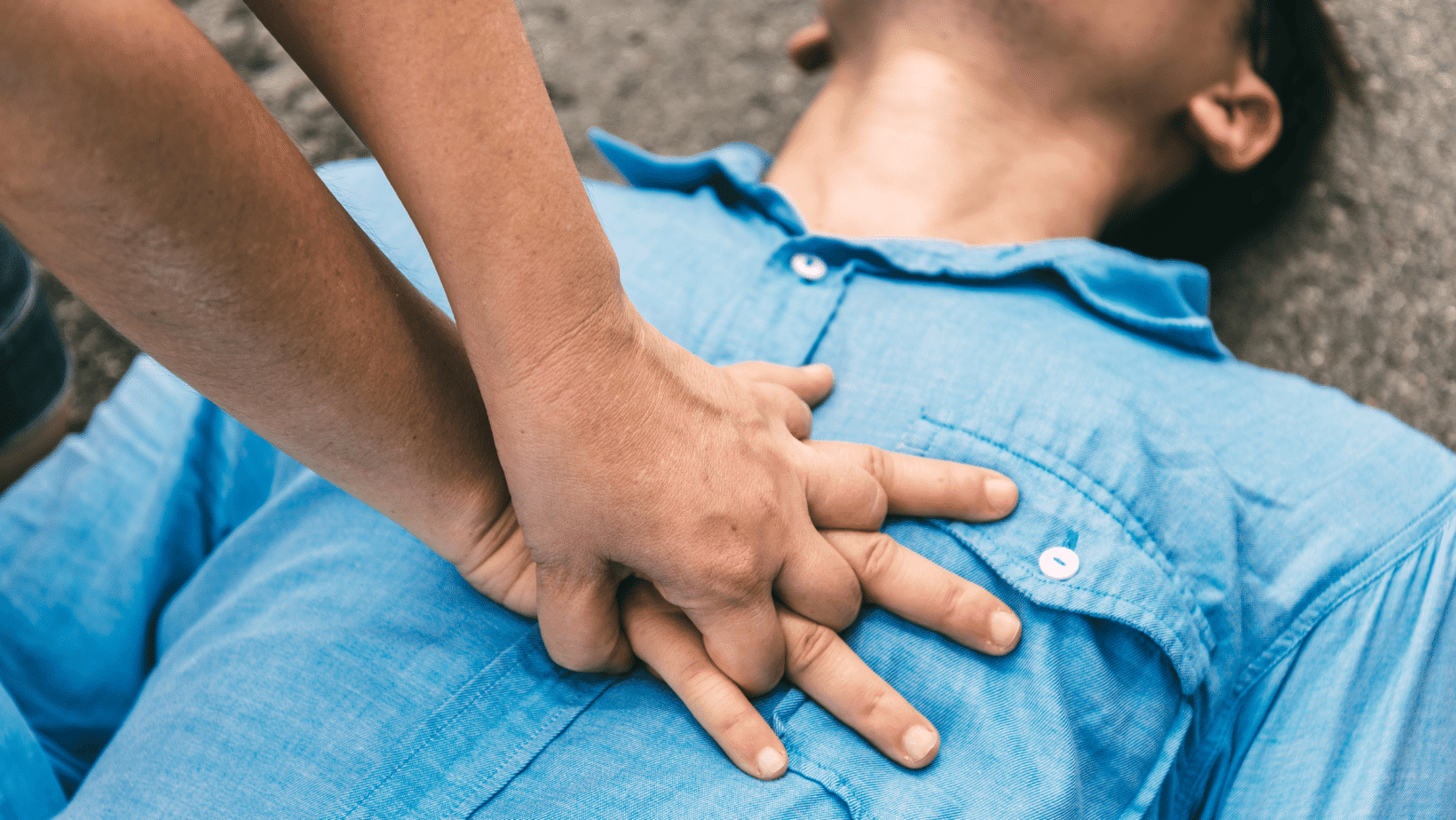Imagine a moment of sudden collapse, followed by frantic calls for help, the blare of sirens, and the fierce urgency of life-saving chest compressions. This isn’t a scene from a medical drama; this is the surreal, unforgettable experience of surviving cardiac arrest and undergoing CPR. Amid the whirlwind of emergency response and subsequent physical recovery, there lies an often silent but significant chapter that many survivors grapple with – the psychological component of their survival story.
In our extensive exploration, we’re shedding light on the psychological odyssey of CPR survivors, providing a roadmap for recovery that goes beyond the physical realm. From understanding the trauma to taking steps toward healing and resilience, this guide is not just for those who have survived CPR; it’s for the support network that surrounds them, and the healthcare professionals dedicated to their well-being.
Understanding the Trauma
A brush with death isn’t easily forgotten. For those who have survived sudden cardiac arrest, the experience can leave a lasting imprint on the psyche. The fear, confusion, and nearness to mortality that these heroes face can trigger a range of psychological responses, from acute stress to long-term disorders.
The Transformative Nature of Trauma
Survivors often express feeling as if they’ve had an out-of-body experience, observing their own resuscitation efforts from a surreal distance. The transformation isn’t just metaphorical; it can signal a profound shift in their identity and outlook on life. The distinction between ‘before’ and ‘after’ their brush with mortality can seem as stark as night and day, and processing this change is a crucial aspect of their psychological recovery.
Common Psychological Responses
- Fear of Death: A natural response to a life-threatening event, this fear can be all-consuming, leading survivors to question the inherent fragility of life.
- Anxiety and Hyperarousal: Post-CPR, many experience heightened vigilance, as if waiting for the other shoe to drop. Everyday situations can trigger intense anxiety due to the body’s natural “fight or flight” response.
- Depression: Lingering feelings of sadness, hopelessness, and a loss of interest in once-pleasurable activities can set in, overshadowing the joy of survival.
- Post-Traumatic Stress Disorder (PTSD): Some survivors develop full-blown PTSD, marked by intrusive memories, flashbacks, and an overwhelming sense of dread that can interfere with daily life.
- Existential Crises: Questions of ‘Why me?’ and ‘What now?’ can plague survivors as they grapple with the meaning of their survival and the path that lies ahead.
These responses are not definitive outcomes but natural reactions to an extraordinary event. With understanding and support, they can be navigated, leading to a renewed sense of self and purpose.
Psychological Interventions
Survivors need more than physical healing; they need a suite of psychological interventions tailored to their unique post-CPR challenges. Mental health support post-cardiac arrest needs to be as integral to their recovery plan as physical therapy and medication management.
Counseling and Therapy
Psychoeducation and counseling services provide survivors with a safe space to process their experiences. Therapists skilled in trauma care offer various therapeutic modalities, such as:
- Cognitive-Behavioral Therapy (CBT), which helps untangle and reframe negative thought patterns related to the event.
- Eye Movement Desensitization and Reprocessing (EMDR), an effective therapy for processing traumatic memories and reducing their emotional impact.
- Group Therapy and Support Groups, where survivors share their stories, receive validation, and learn coping skills from others on a similar path.
- Expressive Therapies, including art and music therapy, allow survivors to communicate their emotions non-verbally and engage their inherent creativity in their healing.
Each of these interventions serves a unique purpose, yet all share the common goal of guiding survivors toward psychological integration and peace.
Stress Management Techniques
Equipping survivors with stress management tools empowers them to take an active role in their recovery. These techniques can include:
- Mindfulness and Meditation: By grounding survivors in the present moment, mindfulness techniques dissipate the anxiety stirred by traumatic memories of the past or uncertain visions of the future.
- Deep-Breathing Exercises: Intentional, deep breathing soothes the nervous system and can be particularly effective in reducing the hypervigilance that many survivors experience.
- Physical Exercise: Regular physical activity releases endorphins, bolstering mood and confidence, while the act of moving the body can serve as a grounding metaphor for forward progress.
- Hobbies and Leisure Activities: Engaging in activities that bring joy or peace can be a powerful antidote to the distress that often accompanies the recovery process.
Encouraging the integration of these practices into daily life fortifies survivors against the emotional aftershocks of their cardiac event, creating a resilient foundation on which to rebuild.
Support Systems
No survivor should face the psychological fallout of CPR in isolation. Social and professional support systems play a pivotal role in ensuring that survivors feel heard, understood, and valued.
Family and Social Support
The unconditional love and support of family and friends can be a lifeline for survivors. Loved ones who take the time to listen without judgment and remain present through the survivor’s emotional ups and downs contribute immeasurably to their recovery. These individuals become witnesses to the survivor’s story, affirming its significance and offering a shared narrative of resilience.
Professional Resources
Professionals trained in trauma recovery provide survivors with a roadmap to healing that is backed by expertise and experience. They can answer the tough questions, facilitate the challenging conversations, and help survivors make sense of the emotional turmoil that often accompanies major medical events.
Recovery Journey
The recovery process for CPR survivors is as individual as their finger prints. It’s a multifaceted, non-linear experience that can be likened to a mental and emotional odyssey.
Personal Stories and Testimonials
The power of shared experience cannot be overstated. When survivors listen to the tales of others who have walked a similar path, they gain insight, lessen isolation, and draw strength from the triumphs and strategies of their community. Survivors sharing their personal stories offer beacons of hope to those who are just beginning to reorient themselves after CPR.
Long-Term Recovery
Recovery is not a one-time event but an ongoing commitment to self-discovery and growth. For some, the psychological legacy of CPR may linger, necessitating continued support and a steadfast plan for self-care. Engaging in periodic check-ins with therapists, participating in support groups, and adopting a lifestyle that promotes mental wellness are all part of a survivor’s long-term resilience toolkit.
Educational Resources
Information is empowering, and survivors need access to educational resources that can deepen their understanding of the emotional landscape they now occupy.
Educational Materials
Books, articles, and videos devoted to the psychological recovery post-CPR offer survivors and their support systems a wealth of knowledge. This accessible content provides insight into the common psychological responses to CPV and offers practical advice for navigating the days, months, and years following the event.
Workshops and Seminars
Participating in workshops or seminars focused on post-trauma recovery can be a game-changer for many survivors. These events provide attendees with a blend of educational sessions, interactive exercises, and the opportunity to bond with others undertaking similar journeys. By participating in these events, survivors can hone their coping skills, find validation for their experiences, and discover new tools for their psychological recovery toolbox.
Research and Developments
The field of psychological recovery post-CPR is dynamic and continually evolving. Staying abreast of the latest research and developments can provide survivors with a vision of the innovations on the horizon.
Latest Research
The exploration of post-CPR psychological recovery is increasingly informed by rigorous research. The latest findings offer insights into the most effective therapeutic approaches, the long-term prognosis for survivors, and the factors that contribute to resilience. By engaging with this research, survivors can foster a sense of hope and progress while deepening their understanding of their unique recovery process.
Innovative Therapies
Cutting-edge therapies, such as virtual reality exposure therapy, narrative therapy, and integrative medicine approaches, are being piloted and honed for survivors of trauma. These innovative modalities are at the frontier of post-CPR psychological recovery, offering new avenues for healing that weren’t available to survivors of previous generations.
Ultimately, the psychological recovery for CPR survivors is a complex, but navigable path. By acknowledging the trauma, utilizing appropriate interventions, fostering support systems, and engaging with educational materials and research, survivors can not only reclaim their mental health but also find greater meaning in their second chance at life. This isn’t just about ‘bouncing back’; it’s about ‘leaping forward,’ each step a testament to the indomitable human spirit and its capacity for resilience and renewal.





